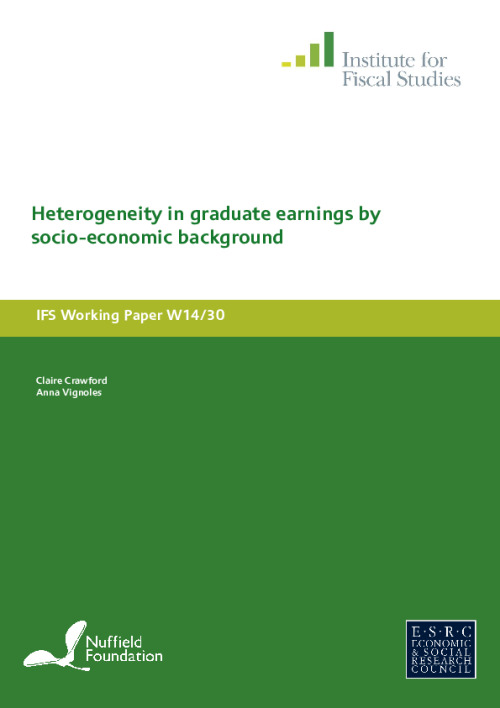Education is often regarded as a route to social mobility. For this to be the case, however, the link between family background and adult outcomes must be broken (or at least reduced) once we take account of an individual’s education history. This paper focuses on individuals who have completed university and provides new evidence on differences in graduates’ earnings by socio-economic background, with a particular focus on whether they attended a private school. We use data on the population of individuals graduating from UK universities in 2006-07 and find that those who attended private schools earn around 7% more per year, on average, than state school students some 3.5 years after graduation, even when comparing otherwise similar graduates and allowing for differences in degree subject, university attended and degree classification. This work complements Macmillan et al. (2013), who found that graduates from private schools were more likely to enter “high status” occupations. However, our results show that earnings differences persist even within occupations, with graduates who attended private schools earning 6% more than their state school compatriots working in the same occupations. This is equivalent to around £1,500 extra per year in our data. Together, these results suggest that there is a pressing need to understand why private schooling confers such an advantage in the labour market, even amongst similarly achieving graduates, and why higher education does not appear to be the leveller it was hoped to be.











